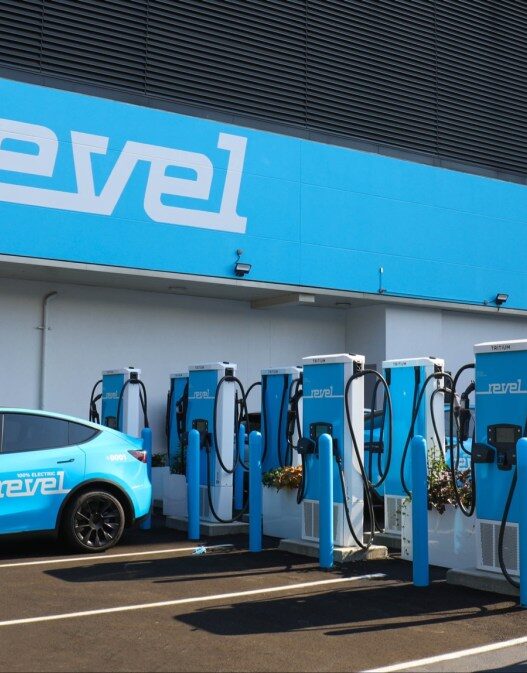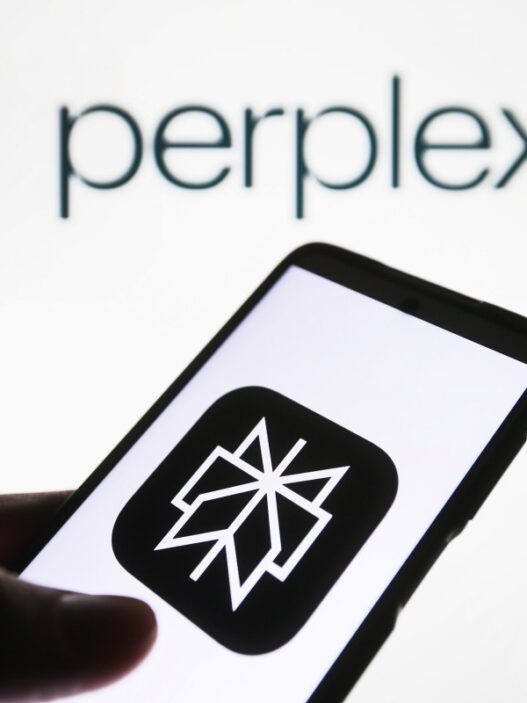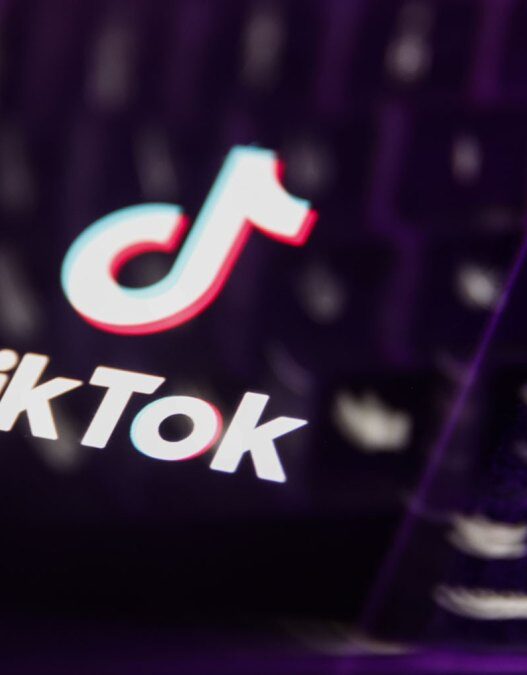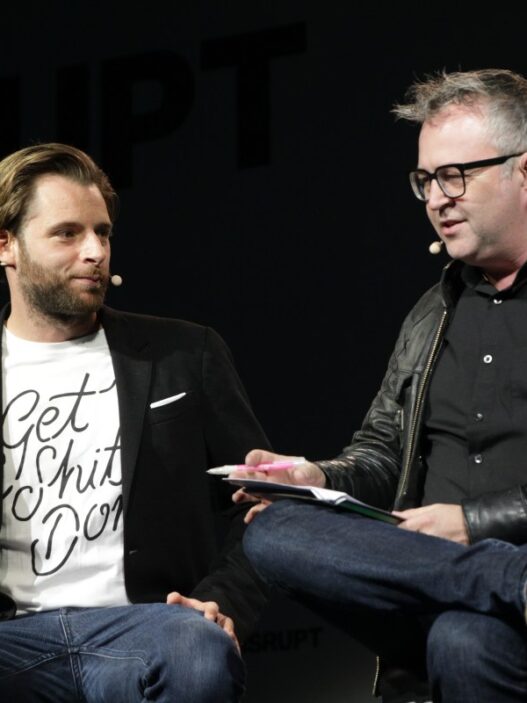Carrying out another partnership on artificial intelligence: The current Amnesty InternationalAnd that is described as the “public interest” initiative that focuses on promoting and directing the development of artificial intelligence in socially beneficial trends, was announced at the French AI summit on Monday – with initial pledges from supporters and a plan of supporters. Pull $ 2.5 billion over the next five years.
Such numbers may seem like small beer when it comes to investing artificial intelligence, as the French president is new from a special support package of about $ 112 billion (which is dwindled alongside American investments aimed at speeding up technology). But partnership no Focus on an account so that its supporters believe that these relatively modest amounts will remain able to make a change in the main areas where Amnesty International can make a decisive difference in the progress of the public interest – both in artificial health intelligence or support climate targets.
According to the focus on the upper line on the “enabled environment for the public interest AI”, the initiative has a number of declared goals-including pressure on expanding access to public and private data groups “high-quality” to train artificial intelligence; Support open source infrastructure and tools to enhance the transparency of artificial intelligence and security; And support the development of systems to measure the social and environmental impact of Amnesty International.
Its founder, Martin Tessne, said that the goal is to create a financial vehicle “to provide a northern star for general financing for critical efforts,” such as – for example – to bring artificial intelligence to combat cancer or come up with treatments for long length.
“I think what is happening is that you have the neck of a upcoming data bottle in artificial intelligence, because we run out on the road with data on the web, effectively … Here, what we need is to open innovations on how he said to Techcrunch:” Make the data available and available. ” .
On the open source, he said that the goal is to support the construction of the ecological system by directing investment in order to ensure that open source tools “can be used smoothly like ownership tools.”
When it comes to accountability of artificial intelligence, the partnership in “unifying the field” hopes-working to participate in the criteria for reviewing artificial intelligence systems responsible for the merit of “deep participation by the various populations and societies that focus on the problems we want (artificial intelligence to help).
“For understandable reasons, there is a lot of focus on huge investments (AI). This is different,” also tell us. “Our focus here is on the public interest. Our focus is on smaller models. We do not improve for AGI (artificial general intelligence) … We are looking into smaller models where you need specific high -value data sets.
“For example, on Parkinson’s disease – there was amazing unification of data groups, which was presented by Michael J Fox – like us is looking for really specific things to make a change in people’s lives.”
Europe and the global southern sheet in
This initiative is supported by a mixture of public and private actors – with governments including France, Germany, Chile, Kenya, Morocco and Nigeria between the nine countries listed as partners at all (Note: United States no Participant, there are no governments throughout Asia, so artificial intelligence effort is to lead policy makers in Europe and the south of the world. Other listed countries are Finland, Slovenia and Switzerland).
However, it was also included in public relations as “the main partners” (the United States) Google and Salesforce.
On the side of the private sector, Tisné said that the partnership is keen to work with industrial research laboratories that do advanced work (as is the case in life sciences); Through technology companies that have a distinguished location against the main current, such as a result of how to use it and/or its open source customers, and with other large companies that are users and buyers of open source products; And with startups that drive envelope to open up.
Other main partners of the currently called the FCA are the French government (which is the spotlight on artificial intelligence governance this week as it hosts the AI Action summit in Paris); Along with many charitable supporters – that is: Ford Foundation; John de Catherine Corporation T. Mac Arthur, and Ai Collaboraage- The last was the AI Government Policy-backed Laby, which is supported by the Omidiar Group and entered the billionaire Pierre Omidiar and his wife’s network.
The CEO of Ai Collaboraage, Tisné, is also the current founder of AI. Discussing the supporters of the current AI phenomena that it seeks to fill, said that there is a gap for a public and private sectors of a public and private sectors that can build momentum behind the efforts made to advance the development of artificial intelligence on the public interest lines.
“This is not a lack of public interest projects in artificial intelligence, it is a massive fragmentation in this field and how we can only work on a much larger scale,” he told Techcrunch during a call. On the scale of critical public interest, artificial intelligence projects. ”
He continued, “Some of them are already exist,” saying it is “a matter of really gathering them, but focus – focusing on the effort so that we can predict protein structures within the human body.
“The private sector is right on private interests and works widely – and it does, as you know, the investment account by arranging tens of billions in the quarter – so we were trying to know what it is. Alphafold on a general database base, including, but not limited to protein data. So the great focus for us will be on data from this perspective.
Supporting ecosystem in public interest AI
He pointed out that the efforts made to broad access to health data can focus, for example, to support the development of privacy maintenance techniques to enable more patients to share their data in artificial intelligence research.
“There is no other partnership that was truly designed to collect the entire field together to combine public financing on a large scale,” he said.
Ghalian said the effort to further Tessni that the current artificial intelligence will extend three tracks: first to provide financial support to the sector in the form of direct financial contributions. It will also seek to play an embrace role – with a goal, for example, to support the research work to care for the innovations of artificial intelligence. Third, it will work to “align the financing so that the various financiers can work jointly on the common goals and goals.” Therefore, its supporters hope to combine efforts to support the diverse public interest and amplify the impact.
The partnership will publish about half of its donor’s money in the form of grant prizes. The other half of the alignment financing efforts – “about openness, about data and accountability”, which Tisné will include hitting “truly specific goals and goals” for each program (not defined yet).
“This is not an organization policy or play. It is truly a building play.”
The current public relations of Amnesty International include a broader list of “supporters” and “heroes” of the initiative-a counselor to an open support letter from the Span industry numbers including the likes of Arthur Mench, co-founder and CEO of the Grand French Language model (LLM) Mistral maker . Series Pioneers and Investors, Brent Hoffman, Clement Dellango, CEO of AI Fair Facing Face;
In the letter they write: “To achieve the best of artificial intelligence, society must be responsible.”
“In practice, this means ensuring that high -valuable data groups are accessible in ways to maintain privacy and safe, stimulate the development of smaller and open Amnesty International models that meet people’s needs and more environment Easy access to everyone, adding: “The future of artificial intelligence must belong to all of us.”
The current Amnesty International expects to unveil new supporters and supporters in the coming months, as Tisné said they are especially keen to work with the Gates Foundation due to its focus on the main header such as health care.
If you are interested in choosing the name (the current AI), he said that they were shooting on something that is drawn as well as the desire to play on the ideas of electrical current and even diversity (think about the river and all life more than it could be filled with).
“It is important that you have more diversity in the field of artificial intelligence,” adding: “We have spent a lot of time in artificial intelligence in worrying about a really far future and what may happen … so this is the really effort to focus on opportunities and opportunities damage today .












